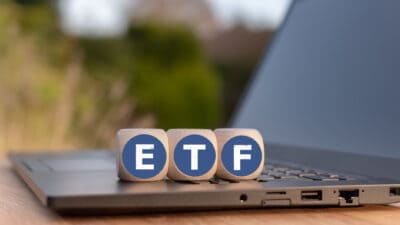The Vanguard Australian Shares Index ETF (ASX: VAS) is the most popular exchange-traded fund (ETF) on the ASX with a fund size of $16.8 billion.
However, the ASX share market only accounts for approximately 2% of global stocks, so investors are missing out on other opportunities if their portfolio is overinvested in the Australian economy. This means diversifying could be wise if your portfolio only includes the VAS ETF, an ASX-focused fund.
We can improve the mix of assets in our portfolio by using ASX ETFs that allocate to the international share market. Let's examine a couple of options offering global exposure.
Betashares Nasdaq 100 ETF (ASX: NDQ)
I believe it's a good idea for most Aussies to get exposure to many of the world's largest and strongest businesses.
I'm talking about names that are directly or indirectly embedded in our lives in Australia, the United States, Europe, and all around the world. These include tech giants such as Microsoft, Apple, Amazon, Nvidia, Meta Platforms, Alphabet, and Netflix.
When you think about it, these companies have grown significant profits over the long term and delivered some of the biggest changes in how we live our lives — and all are holdings in the NDQ portfolio.
Some of the other large and quality businesses within this portfolio of 100 stocks include Costco, Adobe, Advanced Micro Devices and Intuitive Surgical.
Past performance is not a guarantee of future performance, but the NDQ ETF has delivered an average annual return of 20% since the fund started in May 2015. That level of return shows how it can be a mistake to avoid investing in these sorts of global winners, in my view.
The underlying companies still appear to have long growth runways ahead, thanks to global digitalisation, AI, cloud computing, online video, online shopping and several other supportive themes.
Betashares Global Cybersecurity ETF (ASX: HACK)
As I mentioned above, the world is becoming increasingly digital. This is also creating a bigger opportunity for cybercriminals to attack households, businesses, and governments.
According to the Australian Cyber Security Centre, there has been a significant increase in household cybercrime in just one year. The 2023-2024 annual cyber threat report released in November revealed a 12% year-over-year increase to 36,700 calls to the Australian cyber security hotline.
The average self-reported cost of cybercrime per report for individuals increased by 17% to $30,700. The top three self-reported cybercrime types for individuals were identity fraud, online shopping fraud and online banking fraud.
Sadly, I think that theme is playing across the world. That's why cybersecurity businesses are so important.
The HACK ETF gives exposure to global cybersecurity businesses, both the leaders and emerging players.
The portfolio includes Crowdstrike, Cisco Systems, Palo Alto Networks, Broadcom, Infosys, Cloudflare and Fortinet. Some of the smallest holdings include NCC Group, Radware, Onespan, A10 Networks and Blackberry.
I think this ASX ETF gives investors exposure to more defensive earnings than the VAS ETF's portfolio, but it also has an appealing growth element.









